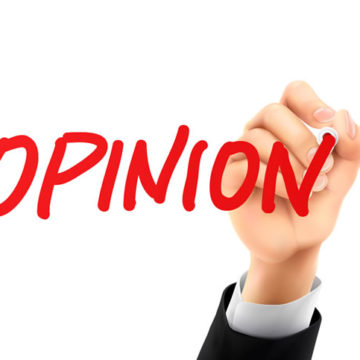
SINCE its inauguration many decades ago, public administration has generated a permanent discursive framework that ensures that it has the theoretical and practical contents to sustain the professionalism and efficiency that the public service requires to complement the state everywhere. This becomes even more critical given that the democratic imperative keeps articulating and aggregating the significant political preferences of a citizenry that knows what it wants from a leadership and its administrative apparatuses. This therefore means that for public administration to fully and adequately complement the democratic imperative—for the public service to optimally aid democratic governance in any state—the public administrative discourse must always be in full swing to ensure it is not outstripped by the discourse on democracy.
This, I suspect, is not the real challenge. This is because the public administration discourse has remained fundamentally fecund in terms of its inner dynamics of responding to the challenges that confront public administration and the public service over the decades. From Max Weber to Woodrow Wilson, and from the new public management (NPM) to the new governance theory, public administration has kept up with the changing dynamics of the times that enables it to overcome critical hindrances and challenges from the first to the fourth industrial revolutions to the transformation of the nature of the state, and from artificial intelligences to the new normal instigated by the COVID-19 pandemic and the poly crises that have engulfed the world.

The real challenge, I think, derives from the capacity of public servants to keep up their intelligence quotient with the vast array of discourses that public administration throws up. The twenty-first century demands a public servant that is knowledgeable, intelligent, adaptable and a transformative leader with the preemptive capacity to articulate a vision, design a strategy and get things done. This challenge to the intelligent quotient of the public servant, like most issues, is again more crucial once we begin to speak about the postcolonial public servant caught within the dysfunctional grip of a postcolonial public service like Nigeria’s. This puts a double bind on such a public servant to do more in order to be able to live up to the national and global expectations of a twenty-first century public servant charged with the fundamental responsibility of crafting and implementing public policies with the tools of modern decision science.
One significant way, and a most difficult one at that, by which a postcolonial public servant and public manager in a country like Nigeria can keep abreast of the public administration discourse and the challenges of remaining effective sufficiently to man the new public service is to have an up-to-date reading list of books that embody the trajectories of the challenges, triumphs and directions of the public administration apparatuses, especially within a specific context. What I want to do within the limited space of this piece is to outline a few critical books that speak to how far public administration and the public service have advanced. And the methodology is to combine books that provide both a global and national perspectives. This speaks to the necessity of inserting a public manager within a global-local context of operation that ensures that such a public manager can think globally and act locally with the discursive resources garnered from such critical intellectual and theoretical-practical resources.
The first book on my list is Zeger van der Wal’s The 21st Century Public Manager (2017). The book is fundamental because it is sufficiently situated in a time that captures the fundamental challenges of public administration in times of crisis (except that it is three years shy of one of the most fundamental challenges to humanity and public administration, the COVID-19 pandemic). However, the book recognizes that we live in a VUCA—volatile, uncertain, complex and ambiguous—time; a VUCA environment that that was aggravated by the pandemic and poly crisis the world, and public administration, is currently confronting. The author was motivated to write a book that demonstrates that “public administration matters.” It is a book that was “hands-on,actor-driven, and speaking to the daily life of public managers who often operate in tough circumstances.” And with the book, the author meant to “speak to (aspiring) public managers across the globe. A book that would take their issues, pains, and challenges but also their optimism, clever solutions, and coping mechanisms as a starting point…. A book, above all, that would take senior practitioners seriously by providing them with examples,perspectives, and strategies grounded in the latest research evidence and best practices while being accessible and actor-driven at the same time. A book, lastly, that would be relevant and timely to public managers in the developing as well as the developed world, in the West and the non-West.”
In chapter four, van der Wal enumerates what he calls the “seven clusters of demands, dilemmas and opportunities” that public managers need to think through to operate optimally within the VUCA administrative environment. The first demand is that of “managing stakeholder multiplicity.” The new governance space now carries the burden of a multitude of stakeholders with diverse and often ambiguous demands, attitudes and styles. The dilemma is how to design and deliver a coherent administrative and managerial vision to such a diverse audience. The opportunity however derives from the benefits of leveraging the unlimited channels and supports that come from such diverse audiences to push through policy goals. The second demand is “Managing authority turbulence.” This implies that an average public manager is caught within an authority matrix that limits her capacity to utilize her formal power to enact critical decisions. The dilemma for the public manager is that of how to demonstrate collaborative capacity, even with those lacking the requisite skills while still holding on to critical authority. And yet, there is the opportunity of shared accountability that comes from the collective ownership of policies and programmes. The third demand for the twenty-first century public manager is “managing the new work(force)”. The public manager is confronted with the changing nature of work itself, and with an emergent workforce that incorporates new workforce, new world views and new generations, from Gen Z to Generation Alpha. This new workforce consists of a young, educated, knowledgeable, tech-savvy and assertive citizenry with a mind of its own. The dilemma is that of how to accommodate this new idea of work(force) while pushing it efficiently to achieve service delivery. The opportunity comes from the ability to remove bureaucratic constraints while achieving performance and productivity.
The fourth demand is that of “managing innovation forces.” Innovation forces are the critical resources, especially innovative technologies, that a public manager requires to keep the public service system as optimal and efficient as possible. The challenge however is that of being as innovative and entrepreneurial as possible within the ambit of budgetary limitations and ambiguous expectations from the politicians and the public. The opportunity that faces the public manager is that of experimenting with newer and developing innovation to achieve effective policies. The fifth demand is “managing ethical complexities.” Public administration is now embroiled within a global ethical governance framework that is enhanced by digital technologies and the need for accountability and transparency. The public manager therefore faces pressure from politicians, citizens, global innovations, and so on. The challenge is that of how to manage the public service ethically while facing enormous scrutiny from multiple publics with competing value sets. The opportunity comes from leading ethically in ways that achieve bureaucratic legitimacy for the state. The sixth demand comes from “managing short versus long time horizons.” This situates the public manager within the need to respond to the need for short-term goals by politicians and long-term planning for overall institutional resilience. The opportunity is that of deploying scenario-building techniques and technologies to anticipate future challenges. The last demand is “managing cross-sectoral collaboration.” This is demanded by the new governance space that involves new and multiple stakeholders and non-state actors. The public manager needs to mediate this space to achieve extensive buy-in and ownership of ideas and policies, generate financial assistances and expertise, and tap into innovative ideas. The dilemma is how to balance this partnership while managing trust and power relations.
In Reinventing Government: How the Entrepreneurial Spirit is Transforming the Public Sector (1992), David Osborne and Teed Gaebler make the critical case that government can follow the logic of performance that have transformed capitalist corporation into performing better and achieving more efficient productivity result. And to make government work more efficiently and productively, the authors argue that government needs to be reinvented through the sweeping away of all bureaucratic bottlenecks that had made government too cumbersome to achieve democratic governance. An entrepreneurial government, as they call it, envisions some broad social goals and objectives, put in place performance management systems that strategize about these objectives, and employ people to sign performance contract to achieve the goals. Osborne and Gaebler envision the responsibility of government as that of steering and not rowing; government’s responsibility is not to deliver services, but to articulate strategies that will enable the service delivery function to be outsourced to private contractors. Reinventing Government follows up on the managerial revolution brought about by the new public management and the objective of making government more flexible, lean and effective for the sake of performance. It demands that the public manager must be more than a thermostatic administrator who is merely gauging the institutional temperature of the public service. She must be more of a leader; a manager who anticipate challenges and coaxes the public service into more entrepreneurial and innovative performances.
In the 2007 book, The End of Government…As We Know It: Making Public Policy Work, Elaine Kamarck takes on the thread of the need to rethink how government business should be pursued for better result. The end of government as we know it is the end of the idea of government circumscribed by a bureaucracy that encumbers government from performing. It is the end of the traditional Weberian framework of government and its deadweights of hierarchies and red tapes. In the post-bureaucratic state, argues Kamarck, government needs to get tools that will facilitate the right connection between policy design and implementation. These tools are categorized into three: reinvented government, government by network and government by market. All three are meant to get the public sector to work in ways that involve externalities and outsourcing modalities that enable government to achieve efficient performance. In its 2011 publication, The Future of Government, the World Economic Forum provides more recent contents that sum the institutional reform objective of bringing the idea of government up to the requirement of the twenty-first century.What the managerial revolution demands is that government must be FAST—flatter, agile, streamlined and tech-enabled. The traditional structure of the bureaucracy, being rigid, inward-looking and founded on outdated competencies, must be modernized in ways that make it more collaborative, transparent, flexible and participatory. In other words, government and its public service must reflect the demands articulated by van der Wal in The 21st Century Public Manager.
The key issue that links all the preceding publication is that of public value that the new public service must create as a response to citizens’ informed demands. This is the focus of Mark H. Moore’s Creating Public Value (1995). In the book, Moore “sets out a philosophy of public management—an idea of what we citizens should expect of public managers, the ethical responsibilities they assume in taking offices, and what constitutes virtue in the execution of their offices.” Within the new managerial imagination, the public manager is more than an administrator who is supposed to look downward in terms of “the reliable control of organizational operations; she is rather meant to look outwards “towards the achievements of valuable results” or upwards “towards renegotiated policy mandates.” A public manager therefore becomes an explorer who is concerned with discovering, defining and producing public value.
These preceding books and publications sum up the global dimension of the materials that ground the postcolonial public managers and the public servants, especially within the Nigerian public service system, within the demands of public administration as a universal endeavor concerned with what the government does and the paradigms, trajectories of discourses and methodologies by which government can become more efficient and more productive. However, this global managerial imagination must be reckoned within the context of the of the inherited public service system Britain bequeathed to Nigeria. In my inaugural lecture, Big Bad Bureaucracy: Reinventing the Bureaucracy as a New Public Service in Nigeria (2018), I took all these preceding books, as well as my many years as a critical insider in the dysfunctional pubic service system in Nigeria seriously. The publication therefore becomes a critical leeway into how the Nigerian civil service system, founded on the traditional Weberian institution, works in stimulating what I have called bureau-pathologies that have compromised the search for a workable developmental state in Nigeria, post-independence. And how an insider perspective could enable a proper understanding of what ails the system, what needed to be done and how to go about reinventing the government from an approach that is not just universal, like Osborne and Gaebler’s, or Kamarck’s or Moore’s; but one that is rooted in contextual administrative dynamics. This provides a situational context by which public managers in Nigeria could begin to relate to what these non-Nigerian administrative theorists are saying about the nature of government and the reinvented mandates of the public manager.
This therefore makes even more fundamental the administrative memoir as a cogent introduction to how Nigerian public managers and public servants navigated the dysfunctionality of the postcolonial system while striving for a more efficient and optimal public service that will instigate developmental planning and democratic governance. Two of such memoirs are crucial, in my reckoning: Chief Simeon Adebo’sOurUnforgettable Years (1984) and Tunji Olaopa’sThe Unending Quest for Reform (2023). Simeon Adebo represents a critical administrative figure in the emergence and consolidation of the public service and public administration discourse in Nigeria. He was one of the founding pioneers that ushered in what has been called the golden age of public administration in Nigeria. Indeed, his administrative commitment in the old western region led to the formulation of the Awolowo-Adebo paradigm of the politics-administration dichotomy, one of the defining dichotomies around which public administration emerged. Adebo’s public service reform efforts constitute a key framework for rethinking the institutional rehabilitating and reinvention of the civil service system in Nigeria. On the other hand, The Unending Quest for Reform articulates a challenging reaction to the bureau-pathologies that ate up the civil service system after the pioneering efforts of Adebo and his cohorts unfortunately went into critical debilitation. The Unending Quest for Reform serves the function of outlining what I consider a philosophy of institutional reform founded on many years of not only participating in the dysfunction of the civil service system, but also researching its root causes and administrative and political trajectories from pre-independenceto date.
I am recommending these books—of course there are more—as the first level of challenging the intellectual acumen of any public manager who is willing to place herself within the VUCA and postcolonial environments of the public service in Nigeria, and dare to be critical sufficiently to become a significant part of the reinvention of the new public service as a world-class institution for making democratic governance productive for Nigerians. It is best to end this reflection about public administration discourse and the books public servants could start reading with Pablo Neruda, the Chilean poet-diplomat and politician: “The books that help you most are those which make you think that most. The hardest way of learning is that of easy reading; but a great book that comes from a great thinker is a ship of thought, deep freighted with truth and beauty.”
READ ALSO: UN Public Service Day: A look at public servants in the world of work








